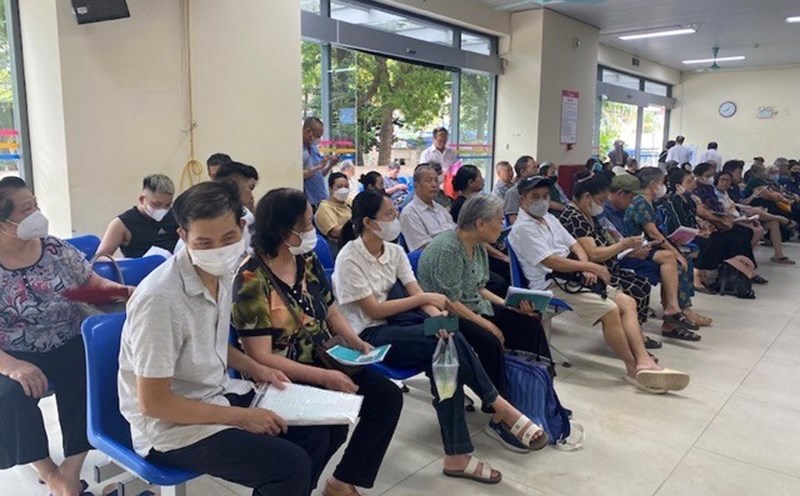This situation was raised by experts at the scientific conference "Updated new advances in diagnosis and treatment of non-communicable diseases", organized by the Vietnam Medical Association.
Causes of 80% of deaths in Vietnam
Prof. Dr. Nguyen Viet Tien, former Deputy Minister of Health, compared the group of non-communicable diseases to "underground waves", not causing major epidemics but silently penetrating and attacking all ages.
C heart disease, cancer, chronic respiratory diseases, diabetes... all have in common the silent progression, but cause serious consequences. Many people are still subjective because the disease starts slowly, but when discovered, it is too late, treatment is expensive and ineffective, he said.
Currently, an estimated 25% of Vietnamese adults suffer from high blood pressure, a high risk factor for stroke and heart failure, leading to about 200,000 deaths each year. For cancer, there are nearly 183,000 new cases and more than 122,000 deaths each year. Chronic respiratory diseases affect 4.2% of people over the age of 40, while type 2 diabetes currently accounts for 5.4% of the adult population.
Notably, these diseases do not rule out anyone, from young children, women, adults to the elderly. Unhealthy eating habits, smoking, drinking alcohol, lack of exercise and prolonged stress are risk factors contributing to the outbreak of this group of diseases.
Worryingly, non-communicable diseases tend to increase sharply, from 1976 to 2015, the mortality rate increased from 44.07% to 73.41%. These diseases do not eliminate anyone, from young children, women, adults to the elderly, due to the influence of unhealthy eating habits, lack of exercise, smoking, alcohol and prolonged stress.
Associate Professor, Dr. Nguyen Thi Xuyen, President of the Vietnam Medical Association, warned: The burden of disease from non-communicable diseases has not only increased rapidly but also left serious consequences for death and disability.
Statistics from the Ministry of Health show that non-communicable diseases are the cause of about 80% of deaths, accounting for 74% of the burden of disease and causing more than 70% of treatment costs in the health system. In particular, the mortality rate from coronary artery disease and stroke - the two leading "guards" in the group of non-communicable diseases continues to increase.
Late detection, treatment chance is almost zero
Currently, most patients are only detected when the disease has become severe. Up to 65% of lung cancer patients in Vietnam are diagnosed with stage III and IV, making the chance of treatment almost zero.
Early diagnosis helps increase the chance of survival, while allowing early intervention through dietary adjustments, exercise... as well as therapies or precautions to prevent the progression to serious illness.
Prof. Dr. Nguyen Van Kinh, Vice President of the Vietnam Medical Association, pointed out that: The one for all treatment regimen is still popular, making it difficult to bring the desired effectiveness of disease management. Treatment needs to be personalized to predict response to each patient, minimizing side effects.
According to the National Strategy for Non-communicable Disease Prevention for the period 2015 - 2025, Vietnam identifies the key goal of promoting prevention, improving primary health care and enhancing early detection. In this context, high-value medical testing solutions, also known as personalized testing, are playing a key role in helping the health sector shift from the mindset of "treating diseases" to " proactive care".
High-value medical testing is an indispensable tool to improve the effectiveness of diagnosis and treatment of non-communicable diseases in the modern medical era. Thanks to advanced biological imprints, doctors can develop a treatment regimen suitable for each patient, based on genetic factors, environment and lifestyle, instead of a common method for all" - Professor Nguyen Van Kinh said.











